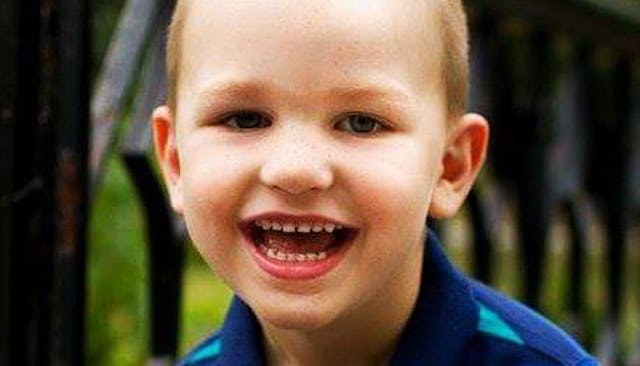My Son Was Diagnosed With Terminal Brain Disease

Almost two years ago, we sat in a neurologist’s office and were told our 2-year-old son had Vanishing White Matter Disease, an incurable, untreatable, terminal brain disease. If I could go back in time, here is what I would tell myself that day…
The next three days will be the worst of your life so far. You won’t understand how you’ll keep going, how you’ll ever be happy again, how you’ll ever live a normal life again. Your life will forever be divided into before the diagnosis and after.
For the next year you will hurt. Terribly. You’ll have never felt such pain before. The pain will at times feel almost physical. You’ll sometimes hide it because most people won’t know how to deal with it.
They’ll want to help, to make you feel better, but you know they can’t. They can’t begin to imagine how it feels to know your child is going to die, and you truly hope they never will.
You will be angry. You will see some bratty child and think, “Really? That kid gets to live and my child has to die? Really?” You’ll know it’s a horrible thought and you shouldn’t be thinking it, but you will.
You will be afraid. Afraid of what this will do to you and your family. Afraid of what happens after your child’s death. You know that knowing what’s coming will not make it any easier.
You will be overwhelmed and exhausted.
But then slowly, it will start to get easier. The anger will fade, the fear will no longer keep you up at night. The worst has happened; there isn’t much left to fear. The pain won’t come as often, though you know it will always come for the rest of your life.
You’ll start to think you might be able to handle it.
You’ll start to accept your child’s fate. At the same time you’ll fight with everything you have to get proper care for your child, to find a treatment or cure so no one else has to go through what you’ve had to go through.
You will never again be the person you were before. You will become a much better person. At first you’ll want to go back, then you’ll start to be thankful for who you’ve become.
You will see life with more clarity. You’ll stop wasting energy on things that really don’t matter. Your priorities will become clear. You’ll be kinder, more compassionate and more tolerant. So will your children, you will be so proud of the people they’re becoming.
You will become stronger then you ever thought you could be. People will say over and over, “I don’t know how you do it.” At first you did it because you didn’t have a choice.
Simply keeping going will make you stronger every single day. Occasionally you will start to think that you can do this, you will be OK, and the gifts your child gives you every day will start to outweigh the pain.
You will appreciate everything. You will be happy, happier than you were before your child’s diagnosis because you now know there’s no time to waste.
Friends, family, strangers will be there, they will help. Every act of kindness will feel personal, and you will feel deep gratitude for each and every one. You’ll have a new appreciation for all the people who care so much for you, your child and your family.
You will stop saying someday and start saying today.
You will make jokes about your child’s illness and disabilities (these will make most people uncomfortable at first, but they’ll get used to your darker sense of humor). You will never, ever again underestimate the power of laughter.
You will know the worst is yet to come. You will know the pain you felt when your child was diagnosed is only a shadow of the pain you will feel when your child is gone. In your grief, you hope you will remember that it was worth it; your child was worth it.
The joy, meaning and purpose your child brought into your lives will ultimately be worth the pain.
You will know that you won’t be alone.
You will still feel overwhelmed. You will still question if you can keep going, but you will also know that you’ve done it before and you will do it again.
You will know that you will never, ever give up.
Related post: The Every Mom
This article was originally published on